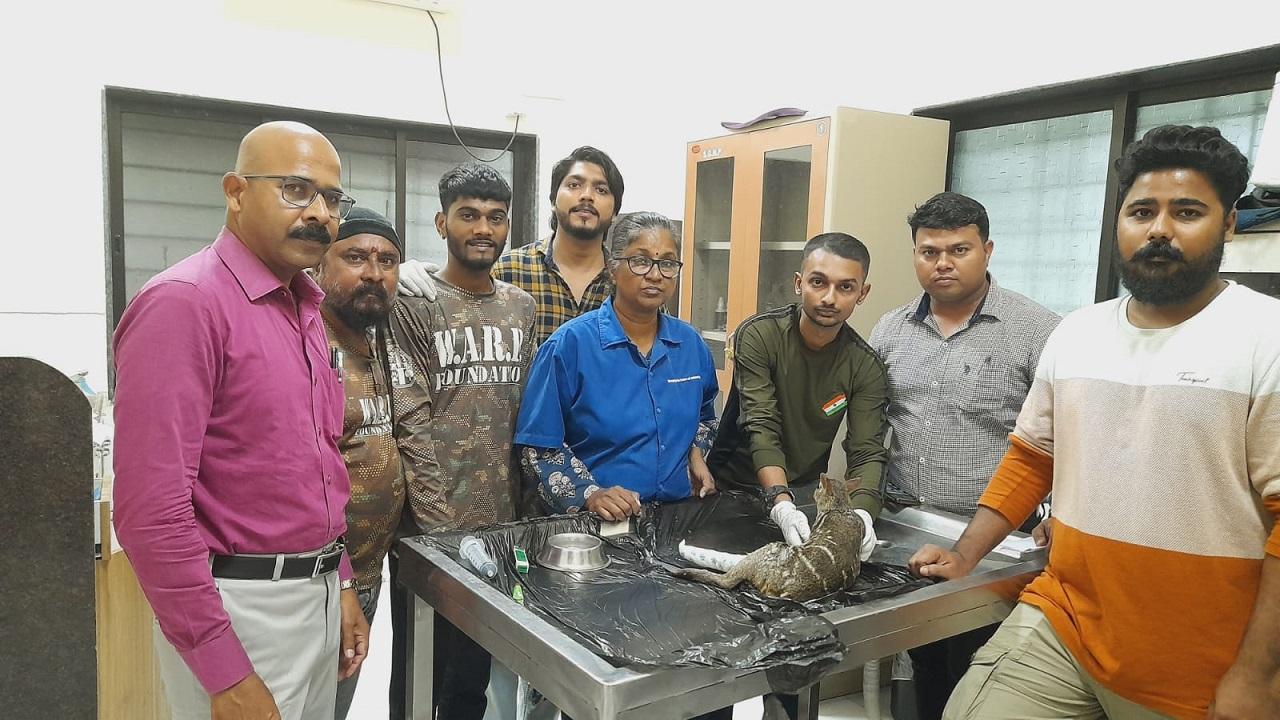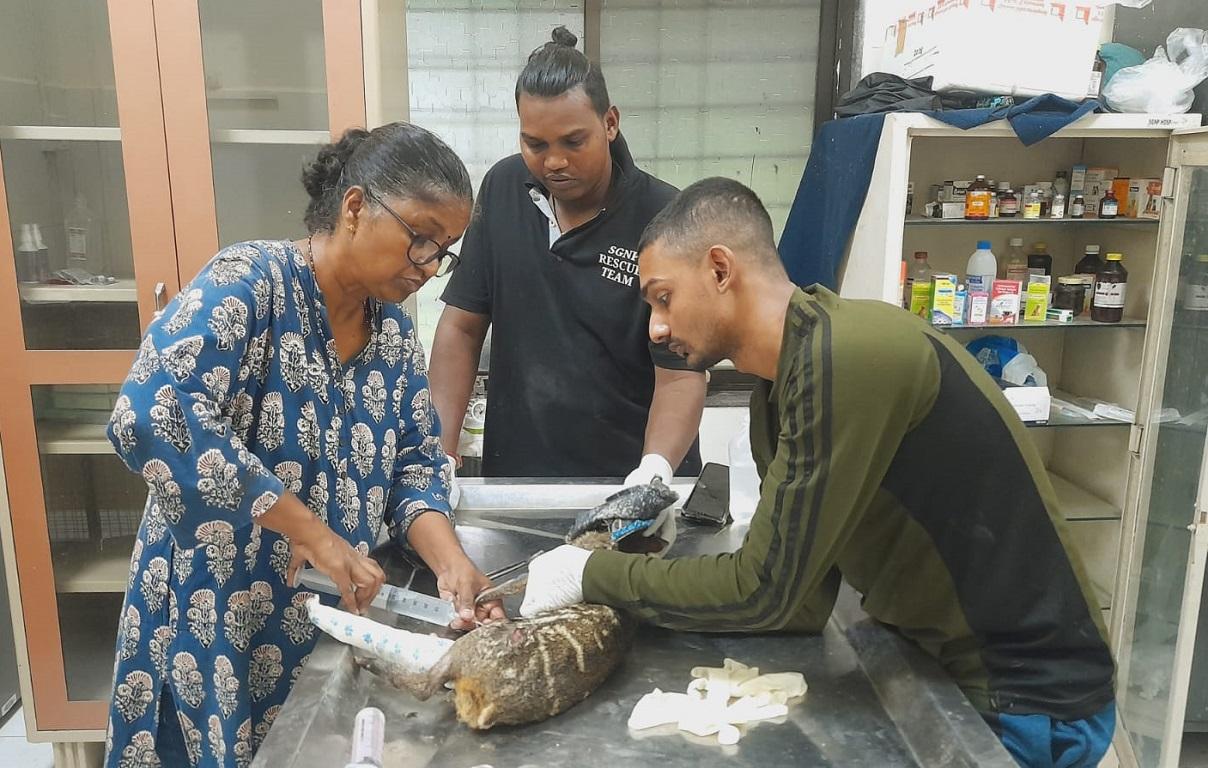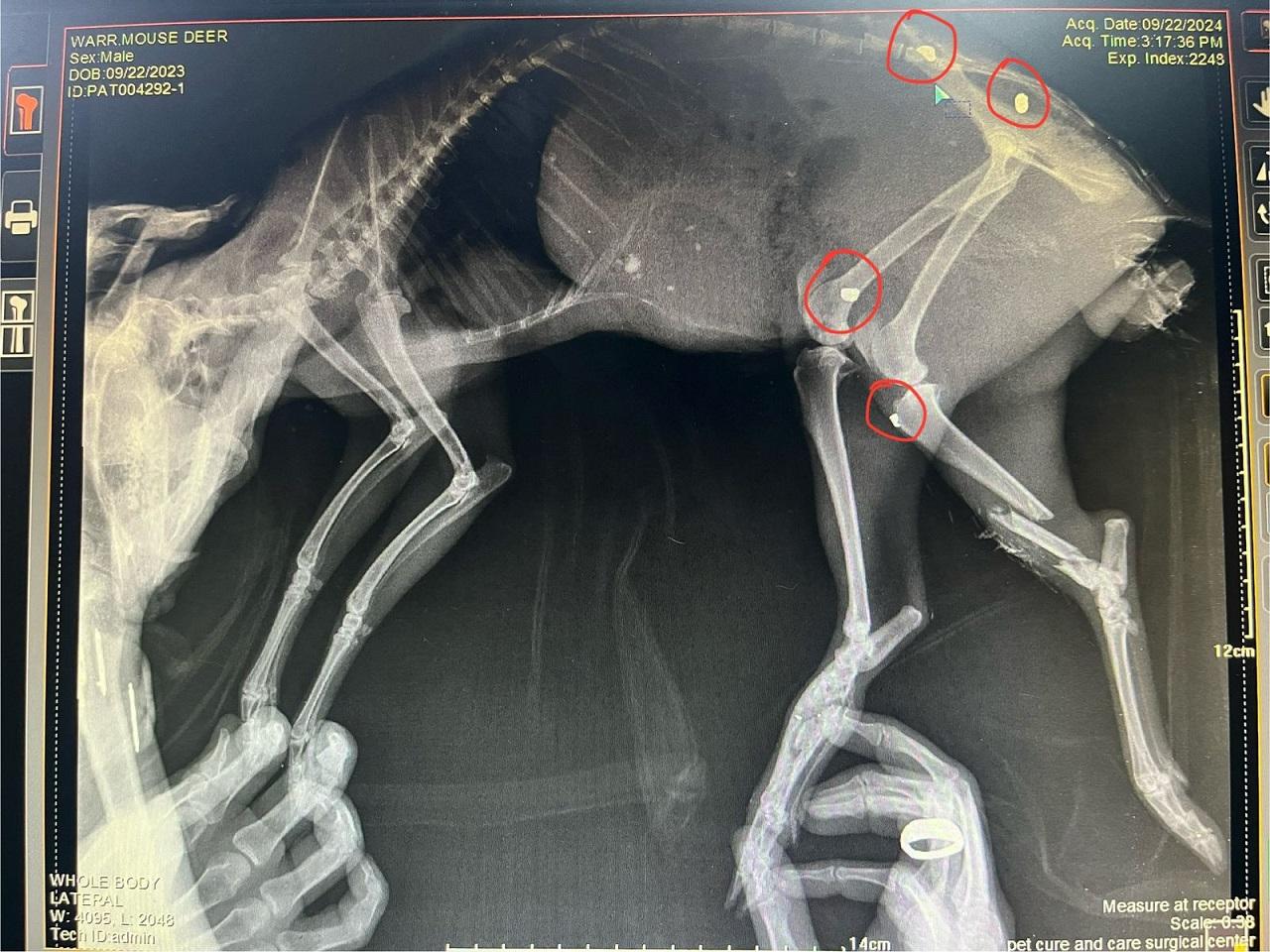The Indian Mouse Deer was rescued by the W.A.R.R. NGO team from the Ambarnath-Badlapur range of the forest department; this deer had survived a poaching attack, where it was targeted for bush meat

Indian mouse deer have a body length of just 23 inches and weigh about 3 kg
A disturbing incident has underscored the persistent poaching issues in the forests near Ambarnath-Badlapur. An Indian Mouse Deer, discovered with pallet bullets embedded in its body, was rescued and brought to Sanjay Gandhi National Park for treatment. The animal, reported to be in critical condition, is currently under observation. Once its condition stabilizes, surgery will be performed. This incident is arguably the first incident of poaching related to the mouse deer in the Mumbai Metropolitan Region.
ADVERTISEMENT
The Indian Mouse Deer was rescued by the W.A.R.R. NGO team from the Ambarnath-Badlapur range of the forest department. This deer had survived a poaching attack, where it was targeted for bush meat.

According to sources from the Maharashtra Forest Department, an Indian Mouse Deer was found in the Badlapur forest with pellet bullets lodged in its body. “The animal was promptly taken to SGNP on Monday by officials from the Badlapur forest division. Veterinarian Dr. Vinaya Jangle and her team provided initial treatment, and once the deer's condition stabilizes, they plan to perform surgery to remove the pellets.”
According to forest department officials, W.A.R.R. NGO discovered an injured male mouse deer in a forested area near Barvi Dam on Sunday night after which they rescued it and handed it over to the forest department.
The presence of pellet bullets in the deer’s body indicates that poachers are active in this region, which is rich in biodiversity and home to leopards, the apex predators of the area. Indian mouse deer is sometimes hunted for food, particularly in certain regions where bushmeat is part of local diets.

SGNP Veterinary Officer Dr Vinaya Jangle stated, “Following a medical examination of the injured mouse deer brought to SGNP, we discovered a fracture in one of its legs, along with a broken spinal cord. X-ray results revealed the presence of pellet bullets in its body. Dr. Wakankar from our team is currently providing treatment, and a decision regarding the removal of the pellets will be made once the animal's condition stabilizes.”
Mouse deer is a rare animal that always lives in the forest away from human habitation. Indian mouse deer is the smallest deer in India and is nocturnal. This deer is found in semi-evergreen, moist evergreen and tropical deciduous forests. The species is very difficult to spot in the wild as it is very shy. The wildlife conservation status of Indian mouse deer, according to IUCN (International Union for Conservation of Nature and Natural Resources), is Least Concern.
Indian Mouse Deer is also known as Indian Spotted Chevrotain (Moschiola indica). Its body length is just 23 inches (57.5 cm), with a tail length of 1 inch (2.5 cm). The mouse deer weighs about 3 kg.
 Subscribe today by clicking the link and stay updated with the latest news!" Click here!
Subscribe today by clicking the link and stay updated with the latest news!" Click here!







